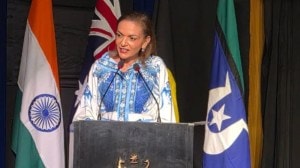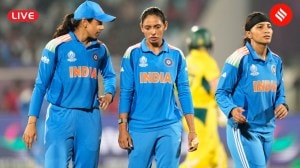Pick and Play
As the ICC rolls up its business sleeves at Lord’s for what is possibly the last time, it might want to give some thought to culling an...

As the ICC rolls up its business sleeves at Lord’s for what is possibly the last time, it might want to give some thought to culling an already overloaded international programme. The feeling is that, with Twenty20 on the way to international status, the problem facing players is both physical — too many matches — and technical (many different styles).
Pakistan have voiced concern over the proliferation of ODIs and last week Brian Lara became the second big player to opt out of the limited-overs circus to focus on Tests. His decision to quit the shorter game, along with that of Shane Warne a year ago, now poses the question of who will be next.
Already coaches and fitness trainers have warned that top stars will follow the example of Lara, whose decision at 36 makes sense. Other players edging into the 30s may also take the Lara/Warne option of playing Tests instead of the near-perpendicular style limited-overs game.
Indeed, someone like Sachin Tendulkar may want to take a hard look at what suits him better in the long-term and quit ODIs, especially if his injury problem surfaces again.
It works both ways: some players have given up their Test careers to concentrate on the shorter game. Chris Cairns and Darren Gough are two names that come to mind but they are an exception, as the limited-overs game demands different styles of technique. Swing and seam bowlers would most probably opt for the short game as it allowed them the chance to stay at this level of competition longer.
After this Ashes series, Glenn McGrath, perhaps even Jason Gillespie, may look at this option as a way of prolonging their careers.
Much would depend on the bowler, on his fitness and mental strength, on family and allied emotional support.
England coach Duncan Fletcher believes mental fitness has much to do with some of the game’s top players wanting to quit the shorter version and concentrate on Tests.
He had noticed it in his years in South Africa as well as since his first stint in England as Glamorgan’s coach in 1998.
‘‘This makes sense’’, he said after the ICC Champions’ Trophy in England last year, where Lara led the West Indies to a spectacular success. ‘‘A lot of players are becoming jaded and it is starting to show.
The limited-overs game means differing fitness and technique levels. Some players can handle it better than others.’’
All this, and Twenty20 too. What Twenty/20 has done is considerably speed up the game, making heavier physical demands and leading to a growing number of injuries.
It is known that the heavy workload has seriously waylaid Sri Lanka’s spin wizard Muttiah Muralitharan. He has not played for the country since the South Africa Test series last year and missed the limited overs games because of a recurring shoulder injury. It was his desire to help the island nation win the trophy that he came back too soon for the Asia Cup held in Sri Lanka 11 months ago.
Since then, fitness problems have recurred to the extent that the new coach, Tom Moody, highlighted this in a decision to change the Sri Lanka physiotherapist.
It also shows how the game is in need of better-qualified physios and fitness trainers in an age where a sportsman or woman’s fitness decides their longevity and earning power. It is becoming tougher at the top.



- 01
- 02
- 03
- 04
- 05




























